Ruination of the Bar self-government system remains the key risk even at the final stage of discussing the amendments to the Law on the Bar
UNBA opposed liquidation of the current system of Bar self-government and proposed to the CJR an alternative model that fully achieves the goal of reforming on the basis of the existing system.
This position was expressed by UNBA/BCU Vice-Presidents Valentyn Gvozdiy, Oleksiy Kuhar and BCU Secretary Pavlo Grechkivsky during the session of the Council for Judicial Reform on February 12, 2018.
Discussing of amendments to the law "On the Bar and Practice of Law", UNBA representatives suggested to CJR members an alternative and called for the waiver of some of the most devastating proposals:
The system of organs of self-government:
The authors of the bill are proposed as a reform:
(1) to eliminate existing balanced Bar self-government that provides a good mechanism of checks and balances both at regional and national level.
Currently, the current system provides for the independence of each body within the self-government. Representative functions are kept separate from qualification and disciplinary, which fully complies with European standards.
Instead, it is proposed (2) to create new bodies with full authority vested with their Chairs, presiding over the single legal entity in each region, that concentrates all the powers, including disposal of finances. At the same time, a draft offers to be exempt Chairs from disciplinary liability for failure to perform or improper performance of their duties. As a result, the person at top of the Regional Chamber will immediately receive unlimited and comprehensive powers: representation, control over access to profession and disciplinary procedures. In essence, all the power will be concentrated under one roof and under the sole authority of one person. Apparently, such a model is harmful, destructive, inconsiderate and contains enormous corruption risks, opens self-government, which should be independent to possibilities of undue influence. Its practical implementation will mark the end of effective development of a single, strong, professional advocates’ organization in the country.
(3) Another very dangerous ‘innovation’ is that reformers offered to completely "cut off" UNBA from regional self-government by law. This entails a complete loss of the unity of the organization and will inevitably weaken its institutional capacity and influence not only within the legal community, but also in relations with authorities, public institutions, international partners. First of all, the advocates will be at loss, since the strong voice of the profession and protection of their professional rights at the national level will become non-existend. Unfortunately, the proposed model has nothing to do with decentralization, but rather is the first step towards the federalization of the profession in otherwise unitary state.
"We have never heard about the rationale behind the need to eliminate existing Bar self-government; instead, all ideas voiced by the reformers have been fully implemented in the alternative draft law developed by UNBA. In addition, it preserves the existing model of self-government and prevents institutional stress. Such reform will strengthen the institutional capacity of UNBA, remove all controversial issues and facilitate the rapid further growth of the organization," said Valentyn Gvozdiy.
About convocation of the conferences
The authors of the draft law proposed not to elect delegates to regional conferences. Instead, it is suggested that all advocates of the region, regardless of their number, territorial affiliation, come to the Conference of Advocates of the Region. There should be at least 5% of the total number of advocates in this region for a successful conference. This idea is based on erroneous perception of district meetings electing delegates to the conference as a negative practice.
In fact, the meeting, where delegates are elected to the conference, ensures the qualitative participation of all the advocates of the region and their direct participation in election. For example, when approving the representation quota, advocates of small districts in the regions have 100% right to participate in the conference with the right to vote. In large cities, the existing model ensures a uniform representation of advocates from all districts. In addition, the system of district meetings makes it possible to delegate the best, venerable representatives who will be able to prepare for the conference. Such an approach guarantees both quantitative and qualitative representation at the conferences and in no way restricts advocates’ rights.
The CJR-proposed model will lead to endless crises in the regions, like multiple conferences held at the same time. This will inevitably lead to the formation of a number of parallel bodies of self-government bodies in a region. This will inevitably transform a stable democratic mechanism for the election of regional bodies into a chaotic process, discredit and undermine confidence in self-government in general.
UNBA urged the CJR not to change the procedure for convocation of the conferences.
At the same time, UNBA agreed with the innovations proposed by the CJR Working Group on the procedure for the announcement, informing, holding conferences and election to advocate's self-government. UNBA’s proposals are balanced in terms of power of authorities and their interaction with each other.
Access to the profession
According to Oleksiy Kuhar, during the discussion, the idea of conducting qualification exams with the participation of three representatives of future HQCB, that will have to travel around the country all the time, was recognized as obviously non-viable. Instead, a preliminary compromise was reached - to leave the current system of examinations in place and add testing to the package. UNBA proposed the concept of exam, that will completely exclude even remote possibility of corruption and provide transparent and automated admission procedures, examination (queues will completely disappear after three weeks), as well as writing a practical task. This idea was supported by members of the CJR. It is important that innovations can be fully realized on the basis of the existing model of advocate's self-government, as suggested by the UNBA.
Disciplinary Procedure
Controversial idea of the Working Group draft law is that Chair of a regional council will not disciplinary liable for failure to comply with the decisions of the Conference, the Congress of Advocates of Ukraine, the BCU, but liable only for misconduct as a regular advocate. "So, if the Chair of the Regional Council illegally excluded the advocate from URAU, did not issue to a certificate of right to practice law, did not issue orders, misused advocates' funds, etc., then an advocate won’t be able to lodge a complaint against him. “Particularly stubborn, in defending this position were those present at the meeting - Inna Rafalska and Petro Boyko," said Oleksiy Kuhar. At the meeting, CJR also talked about the financial powers of the advocate's self-government, which, under the current law, allow for independent activity at all levels and provide for a high level of accountability and transparency. The proposal to prohibit advocates from registering as entrepreneurs did not pass. The next session of the CJR scheduled for February 13 at 5:00 pm. It is planned to complete the discussion of the draft law.
The photo - UNBA representatives during the roundtable "Improving Advocates' Self-Government" February 9, 2018
Popular news
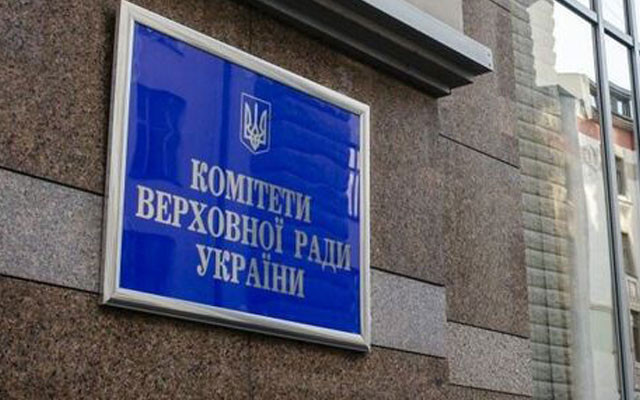
Legislation
The Verkhovna Rada Committee criticized the format of the government working group on advocacy
The implementation of the Roadmap on the rule of law (approved by Cabinet of Ministers Resolution No. 475-r of May 14, 2025) in relation to advocacy raises the practical question of who exactly should prepare legislative changes and how.
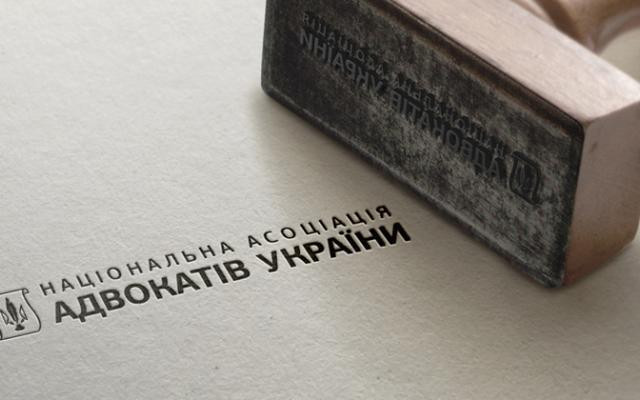
Self-government
The BCU demands a review of the composition of the government working group on reforming the advocacy profession
The President of the UNBA, BCU Lidiya Izovitova, appealed to the Cabinet of Ministers of Ukraine to review the composition of the working group on improving legislation in the field of advocacy and legal practice.

Discussion
Why lowering the age of marriage lacks legal logic
Although until 2012 there was a provision in family law that allowed children to marry from the age of 14 under certain circumstances, its return to Ukrainian law would contradict international obligations and the logic of criminal law.
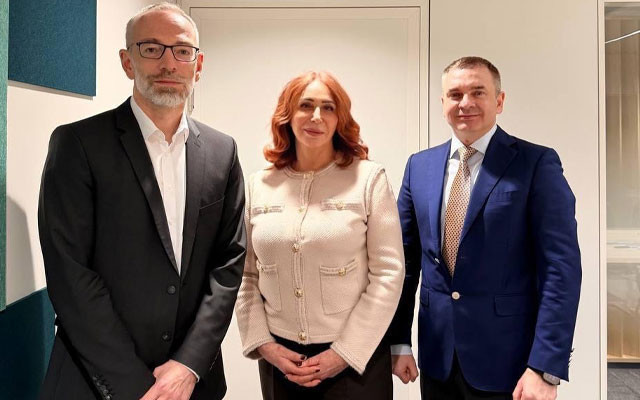
European integration
Open dialogue between the UNBA and the European Commission on the path to EU
The Ukrainian National Bar Association held a working meeting in Brussels with Mr Wolfgang Nozar, Head of Unit for Governance, Rule of Law and Financial Assistance, Directorate-General for Enlargement and Eastern Neighbourhood (DG ENEST), European Commission.

Self-government
A report on Ukrainian advocacy was presented in the European Parliament
Can a shadow report on advocacy replace the political framework of the Roadmap on the rule of law with demands for the restructuring of self-government? Where is the line between accountability and the seizure of institutions? And how can we respond to narratives with data rather than impressions?
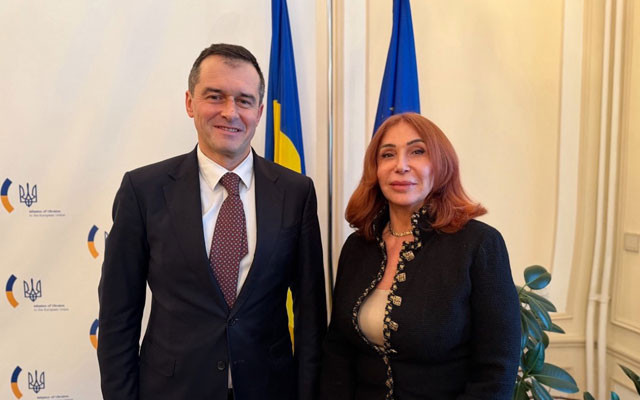
European integration
UNBA and Ukraine's representation to the EU have synchronized their priorities
On February 5, in Brussels, the President of the UNBA, BCU Lidiya Izovitova held a working meeting with the Ambassador Extraordinary and Plenipotentiary of Ukraine, Representative of Ukraine to the European Union Vsevolod Chentsov.
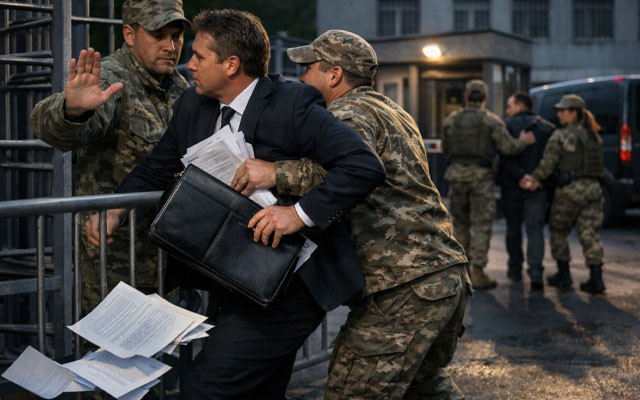
Guarantees of the practice of law
Proceedings opened following attack on advocate in Dnipro
The Committee for the protection of advocates' rights and guarantees of legal practice of the UNBA appealed to law enforcement agencies in connection with an advocate's report of an attack while performing his professional duties. The information was entered into the Unified Register of Pre-trial Investigations and a pre-trial investigation was initiated.
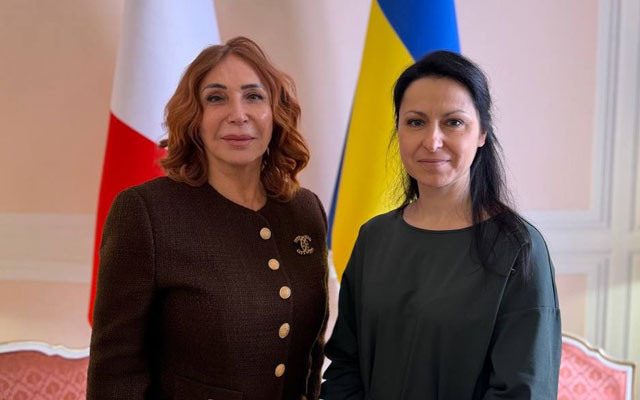
Abroad
The Ukrainian Embassy in Italy has provided information on the legal aspects of the Roadmap
On February 2, the President of the UNBA, BCU, Lidiya Izovitova, held a meeting with the Chargé d'Affaires of the Embassy of Ukraine in the Italian Republic Oksana Amjadin.
Publications

Volodymyr Matsko Extradition as a systemic form of rights violations

Victoria Yakusha, Law and Business The anti-corruption vertical cannot «take care» of the Bar as an institution, - acting head of the HQDCB

Censor.net Protecting advocates – protecting justice: addressing concerns about the new law

Ihor Kolesnykov A BRIEF SUMMARY REGARDING THE APPLICATION OF THE ORDER ON EXTENDED CONFISCATION IN LATVIA REGARDING FINANCIAL ASSETS OF…

Valentyn Gvozdiy WORKING IN A WAR ZONE

Lydia Izovitova Formula of perfection

Sergiy Vylkov Our judicial system is so built that courts do not trust advocates

Iryna Vasylyk Advocacy in the proclamation of Independence of Ukraine
